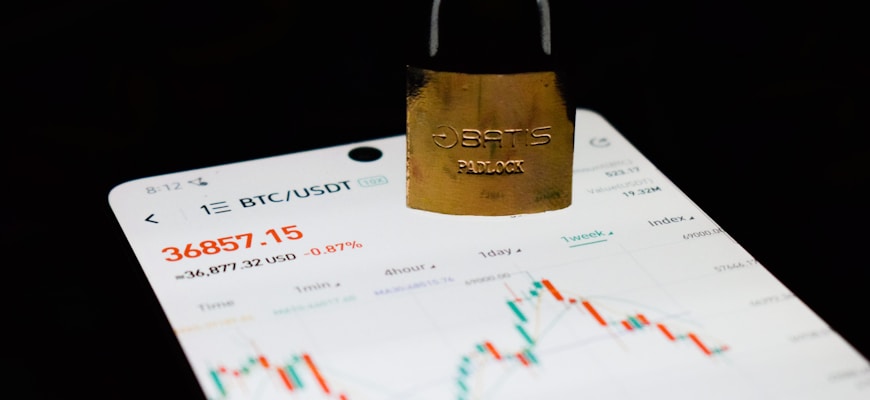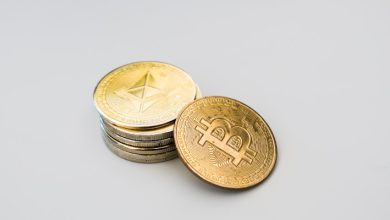How to Protect Your Crypto Assets from Hacks and Scams

- Understanding the risks of hacks and scams in the crypto world
- Securing your crypto assets with strong passwords and 2-factor authentication
- Identifying and avoiding common scams targeting crypto investors
- Choosing the right wallet to store your cryptocurrencies safely
- Keeping your private keys secure and protected from potential threats
- Educating yourself on the latest security measures and best practices in the crypto industry
Understanding the risks of hacks and scams in the crypto world
It is essential to understand the risks associated with hacks and scams in the crypto world to protect your assets effectively. Hackers and scammers are constantly evolving their tactics to exploit vulnerabilities in the cryptocurrency space, making it crucial for investors to stay informed and vigilant.
One of the most common types of scams in the crypto world is phishing, where scammers use fraudulent emails or websites to trick individuals into revealing their private keys or login credentials. By pretending to be a legitimate entity, such as a cryptocurrency exchange or wallet provider, hackers can gain access to your funds and steal them without your knowledge.
Another risk to be aware of is hacking, where cybercriminals use sophisticated techniques to breach security systems and access private keys or wallets. Once they have control of your assets, it can be challenging to recover them, as transactions made on the blockchain are irreversible.
To protect yourself from hacks and scams, it is essential to take precautions such as using secure wallets, enabling two-factor authentication, and avoiding suspicious links or emails. By staying informed and practicing good security habits, you can minimize the risk of falling victim to malicious actors in the crypto world.
Securing your crypto assets with strong passwords and 2-factor authentication
Protecting your crypto assets from hacks and scams is crucial in the volatile world of digital currencies. One of the most effective ways to secure your holdings is by using strong passwords and enabling 2-factor authentication (2FA). By following these simple steps, you can significantly reduce the risk of unauthorized access to your funds.
When creating a password for your crypto accounts, make sure to use a combination of uppercase and lowercase letters, numbers, and special characters. Avoid using easily guessable passwords such as “123456” or “password”. Instead, opt for a unique passphrase that is difficult for hackers to crack.
In addition to a strong password, enabling 2-factor authentication adds an extra layer of security to your accounts. This feature requires you to verify your identity using a second method, such as a text message code or a biometric scan. Even if a hacker manages to obtain your password, they would still need access to your second factor to gain entry.
Remember to never share your passwords or 2FA codes with anyone, and avoid using public Wi-Fi networks when accessing your crypto accounts. By taking these precautions, you can protect your assets and trade with peace of mind in the fast-paced world of cryptocurrency.
Identifying and avoiding common scams targeting crypto investors
When investing in cryptocurrencies, it is crucial to be aware of common scams that target crypto investors. By being informed and vigilant, you can protect your assets from falling victim to these fraudulent schemes.
One of the most prevalent scams in the crypto space is phishing. Phishing scams involve fraudulent emails or websites that impersonate legitimate platforms to steal your sensitive information, such as login credentials or private keys. To avoid falling for phishing scams, always double-check the URL of the website and never click on suspicious links.
Another common scam is fake ICOs (Initial Coin Offerings). Scammers create fake ICOs to lure investors into investing in non-existent projects, only to disappear with their funds. To avoid fake ICOs, always research the project team and read the whitepaper carefully before investing.
Ponzi schemes are also a threat to crypto investors. Ponzi schemes promise high returns on investment but use new investors’ funds to pay off existing investors. Eventually, the scheme collapses, leaving investors with significant losses. To avoid Ponzi schemes, be wary of investment opportunities that seem too good to be true.
Lastly, be cautious of social media scams that involve fake giveaways or impersonations of well-known figures in the crypto community. Scammers use these tactics to trick investors into sending them their cryptocurrency. Always verify the authenticity of any giveaway or communication from a public figure before taking any action.
Choosing the right wallet to store your cryptocurrencies safely
When it comes to protecting your crypto assets from hacks and scams, choosing the right wallet to store your cryptocurrencies safely is crucial. There are several types of wallets available, each with its own set of features and security measures. It’s essential to do your research and select a wallet that meets your needs and provides the level of security you require.
One option is a hardware wallet, which is considered one of the most secure ways to store your cryptocurrencies. These wallets store your private keys offline, making them less vulnerable to hacking attempts. Another option is a paper wallet, which involves printing out your private keys and storing them in a secure location. While this method is secure, it can be cumbersome to use for everyday transactions.
Alternatively, you may choose to use a software wallet, which can be accessed via a desktop or mobile application. These wallets are convenient and easy to use, but they may be more susceptible to hacking attempts. It’s essential to choose a reputable software wallet provider and enable two-factor authentication to enhance security.
Regardless of the type of wallet you choose, it’s crucial to follow best practices for securing your cryptocurrencies. This includes keeping your private keys safe and secure, using strong passwords, and regularly updating your wallet software. By taking these steps and choosing the right wallet, you can help protect your crypto assets from hacks and scams.
Keeping your private keys secure and protected from potential threats
When it comes to protecting your crypto assets from hacks and scams, one of the most crucial steps you can take is to keep your private keys secure and protected. Your private keys are essentially the keys to your digital safe, allowing you to access and manage your funds. Here are some important tips to help you keep your private keys safe:
- Store your private keys offline in a secure location, such as a safe deposit box or a hardware wallet. This will help prevent hackers from gaining access to your keys through online attacks.
- Avoid sharing your private keys with anyone, even trusted friends or family members. Your private keys should be kept confidential at all times to prevent unauthorized access to your funds.
- Consider using a passphrase in addition to your private keys for an extra layer of security. This will make it even more difficult for hackers to access your funds, as they would need both your private keys and passphrase.
- Regularly back up your private keys in multiple secure locations to ensure that you can still access your funds in case of loss or damage to your primary storage method.
By following these tips and keeping your private keys secure, you can greatly reduce the risk of falling victim to hacks and scams in the world of crypto assets. Remember, protecting your private keys is essential to protecting your funds.
Educating yourself on the latest security measures and best practices in the crypto industry
Staying informed about the latest security measures and best practices in the crypto industry is crucial for protecting your assets from hacks and scams. By educating yourself on the most up-to-date techniques and strategies, you can stay one step ahead of cybercriminals who are constantly evolving their tactics.
One way to stay informed is by following reputable crypto news sources and industry blogs. These sources often provide valuable insights into emerging threats and how to mitigate them. Additionally, attending webinars and conferences focused on crypto security can help you stay current on the latest trends in the industry.
Another important aspect of educating yourself on security measures is understanding the technology behind cryptocurrencies. By familiarizing yourself with blockchain technology and how it works, you can better grasp the security implications of different crypto assets and wallets.
Furthermore, consider taking online courses or certifications in cybersecurity and cryptography. These courses can provide you with a deeper understanding of the principles behind secure systems and how to apply them to your crypto assets.
Remember, knowledge is power when it comes to protecting your crypto assets. By staying informed and continually educating yourself on security measures, you can minimize the risk of falling victim to hacks and scams in the volatile world of cryptocurrencies.



